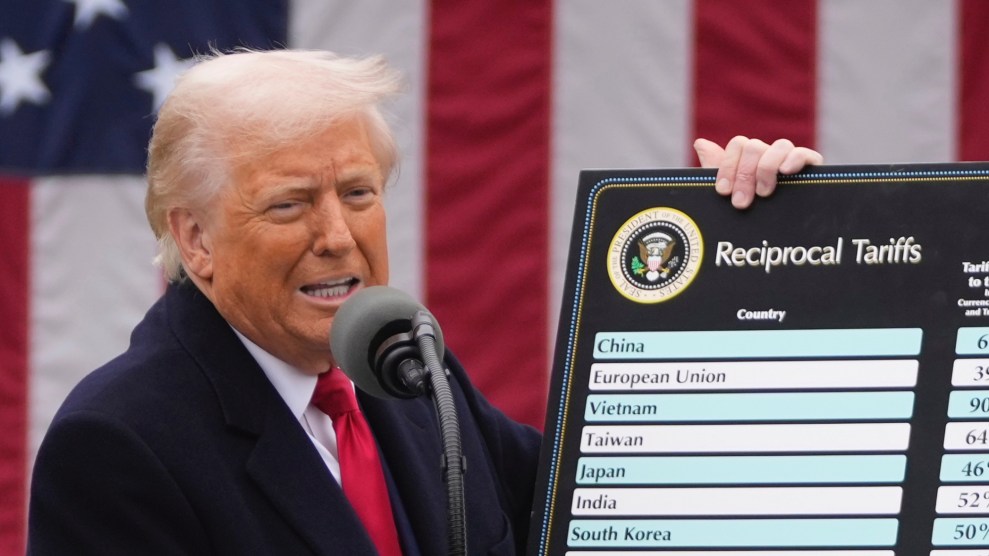Politics
Trump Acknowledges Tariffs Contribute to Rising Food Prices

President Donald Trump has implicitly acknowledged that his tariffs are contributing to rising food prices in the United States. On Friday, the Trump administration announced a temporary exemption for a range of groceries—including essential items like beef, coffee, and bananas—from tariffs implemented earlier this year. This move appears to be an effort to alleviate some of the financial strain currently affecting American consumers, particularly as more than half of Americans report that rising food costs are a significant source of stress.
The administration’s decision comes in the wake of disappointing electoral results for Republican candidates in recent gubernatorial races in Virginia and New Jersey, as well as other local elections. These losses highlight a growing need for the GOP to present a more robust economic message. In response to these developments, Trump discussed the importance of affordability on Fox News shortly after the elections, claiming that the term is being promoted by Democrats while asserting that his administration has successfully lowered prices overall.
Despite this assertion, inflation rates remain a concern. Federal data from September indicates that while inflation has decreased since its peak in 2022, grocery prices have continued to rise, presenting the fastest annual increase since that time. The publication of October data has been delayed due to a government shutdown, adding to the uncertainty surrounding economic indicators.
In an AP-NORC poll conducted in August, over half of respondents indicated that grocery costs were a major stressor in their lives. Trump’s previous claims that his tariffs do not impact consumer prices now appear contradictory given the necessity to roll back some of these tariffs. “We just did a little bit of a rollback on some foods, like coffee as an example, where the prices of coffee were a little bit high. Now they’ll be on the low side in a very short period of time,” Trump stated during a press conference.
Coffee prices, in particular, have increased by 19 percent over the past year. This rise is largely attributed to a 50 percent tariff imposed on Brazilian imports, a decision linked to ongoing legal matters involving former Brazilian President Jair Bolsonaro.
An October poll conducted by CNN found that less than a third of Americans believe Trump has fulfilled his promises regarding affordability. More than 60 percent of respondents stated that they believe economic conditions in the country have worsened under his leadership.
As the Trump administration grapples with public perception and economic realities, the recent tariff exemptions may serve as a crucial step towards addressing the concerns of American consumers. The administration’s next moves will likely be closely scrutinized as the political landscape continues to evolve.
-

 Science1 month ago
Science1 month agoIROS 2025 to Showcase Cutting-Edge Robotics Innovations in China
-

 Science2 weeks ago
Science2 weeks agoUniversity of Hawaiʻi at Mānoa Joins $25.6M AI Initiative for Disaster Monitoring
-

 Lifestyle1 month ago
Lifestyle1 month agoStone Island’s Logo Worn by Extremists Sparks Brand Dilemma
-

 Health1 month ago
Health1 month agoStartup Liberate Bio Secures $31 Million for Next-Gen Therapies
-

 World1 month ago
World1 month agoBravo Company Veterans Honored with Bronze Medals After 56 Years
-

 Politics1 month ago
Politics1 month agoJudge Considers Dismissal of Chelsea Housing Case Citing AI Flaws
-

 Lifestyle1 month ago
Lifestyle1 month agoMary Morgan Jackson Crowned Little Miss National Peanut Festival 2025
-

 Health1 month ago
Health1 month agoTop Hyaluronic Acid Serums for Radiant Skin in 2025
-

 Science1 month ago
Science1 month agoArizona State University Transforms Programming Education Approach
-

 Business1 month ago
Business1 month agoTruist Financial Increases Stake in Global X Variable Rate ETF
-

 Sports1 month ago
Sports1 month agoYamamoto’s Mastery Leads Dodgers to 5-1 Victory in NLCS Game 2
-

 Top Stories1 month ago
Top Stories1 month agoIndonesia Suspends 27,000 Bank Accounts in Online Gambling Crackdown








